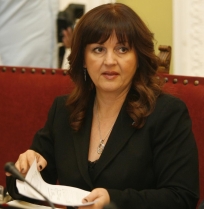- Serbia
Get to know Serbia
- Citizens
Culture and science
Health services
Pension and disability insurance
- Business
Employment
Economy
- Media
- Government
- Contact
Keep in touch
Contact form
Back
Keepin touch
Whether you have a question, comment, suggestion or any problem in the purview of the government, send us your message and we will try to respond as soon as possible. If your problem is not in our purview, we will forward your message to the relevant institution.
Q:
A:
Serbia’s visa-free regime currently not in danger
Belgrade,
7 November 2012
Deputy Prime Minister for European Integration Suzana Grubjesic said today at a meeting of the parliament’s Committee for European Integration that our country’s visa-free regime is currently not threatened.
Grubjesic stated that since 2 June around 5,000 citizens who sought asylum in Western Europe countries were returned due to intensified control measures at border crossings.
Grubjesic announced that, as one of the measures for reducing the number of false asylum seekers, the Ministry of Justice will propose amendments to the Criminal Code which would qualify false asylum seeking as a criminal offence, and voiced hope this will be adopted soon.
Grubjesic warned that the fact that the visa-free regime is currently not in danger does not mean that the problem will not occur again next year.
Stating that the commission for monitoring the visa-free regime has taken a number of measures and activities to reduce the number of false asylum seekers, Grubjesic said that the Serbian government's commitment to cooperate in resolving this issue has been recognised everywhere in Europe.
The main destination of false asylum seekers from Serbia are Germany, Sweden, Switzerland, Luxembourg and Belgium, she added noting that there were no organised departures from Serbia.
According to the data of the German Ministry of the Interior, the number of asylum seekers from Serbia increased in July and August, and the issue of abolishing the visa-free regime was raised due to 1,467 applications.
She added that the total number of asylum seekers this year was lower than the previous year.
The Deputy Prime Minister recalled that Serbia requested to be on the list of safe third countries and that financial assistance to asylum seekers be reduced and that the procedures for consideration of their demands be shortened.
Belgium and Denmark have resolved this problem because they just shortened the procedure and virtually eliminated assistance to asylum seekers, Grubjesic explained.
The Serbian government has formed a coordinating body for accession to the EU headed by Prime Minister and Minister of the Interior Ivica Dacic, she said.
She pointed out that the formation of 35 subgroups for the preparation of negotiations on Serbia's membership in the EU is underway.
She also said that after the completion of the process, the work on harmonising the National Programme for Integration of Serbia into the EU will follow, to be applied from 2013 and during the following four years.
The programme will be based on the commitments under the Stabilisation and Association Agreement and include all liabilities that are not filled by the end of this year, Deputy Prime Minister explained.
Grubjesic said that the starting point will be annual progress reports, and the document will follow the two annexes, one of which will be the summary of measures to be implemented, the description of priorities and strategic documents, while the second will refer to the planned budget.
The Committee for European Integration adopted the Report on the Implementation of the National Programme for Integration of Serbia into the European Union (NPI) for the second and third quarter of 2012 that Grubjesic presented at today's session of the committee.
Grubjesic announced that, as one of the measures for reducing the number of false asylum seekers, the Ministry of Justice will propose amendments to the Criminal Code which would qualify false asylum seeking as a criminal offence, and voiced hope this will be adopted soon.
Grubjesic warned that the fact that the visa-free regime is currently not in danger does not mean that the problem will not occur again next year.
Stating that the commission for monitoring the visa-free regime has taken a number of measures and activities to reduce the number of false asylum seekers, Grubjesic said that the Serbian government's commitment to cooperate in resolving this issue has been recognised everywhere in Europe.
The main destination of false asylum seekers from Serbia are Germany, Sweden, Switzerland, Luxembourg and Belgium, she added noting that there were no organised departures from Serbia.
According to the data of the German Ministry of the Interior, the number of asylum seekers from Serbia increased in July and August, and the issue of abolishing the visa-free regime was raised due to 1,467 applications.
She added that the total number of asylum seekers this year was lower than the previous year.
The Deputy Prime Minister recalled that Serbia requested to be on the list of safe third countries and that financial assistance to asylum seekers be reduced and that the procedures for consideration of their demands be shortened.
Belgium and Denmark have resolved this problem because they just shortened the procedure and virtually eliminated assistance to asylum seekers, Grubjesic explained.
The Serbian government has formed a coordinating body for accession to the EU headed by Prime Minister and Minister of the Interior Ivica Dacic, she said.
She pointed out that the formation of 35 subgroups for the preparation of negotiations on Serbia's membership in the EU is underway.
She also said that after the completion of the process, the work on harmonising the National Programme for Integration of Serbia into the EU will follow, to be applied from 2013 and during the following four years.
The programme will be based on the commitments under the Stabilisation and Association Agreement and include all liabilities that are not filled by the end of this year, Deputy Prime Minister explained.
Grubjesic said that the starting point will be annual progress reports, and the document will follow the two annexes, one of which will be the summary of measures to be implemented, the description of priorities and strategic documents, while the second will refer to the planned budget.
The Committee for European Integration adopted the Report on the Implementation of the National Programme for Integration of Serbia into the European Union (NPI) for the second and third quarter of 2012 that Grubjesic presented at today's session of the committee.
-
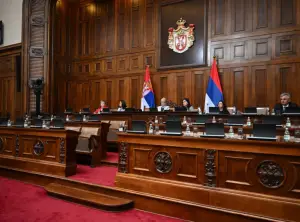 Belgrade, 7 November 2025
Belgrade, 7 November 2025Parliament adopts multiple laws
-
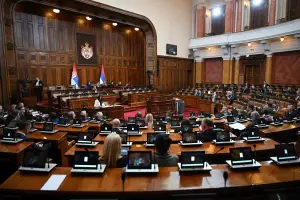 Belgrade, 22 October 2025
Belgrade, 22 October 2025Parliament adopts several laws, ratifies multiple international agreements
-
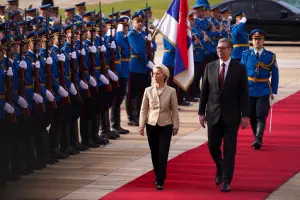 Belgrade, 15 October 2025
Belgrade, 15 October 2025Vučić welcomes Ursula von der Leyen in front of Palace of Serbia
-
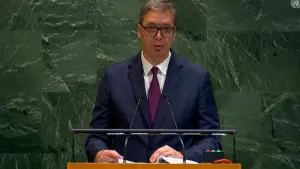 Belgrade/New York, 24 September 2025
Belgrade/New York, 24 September 2025Respect for UN Charter obligation of all countries
-
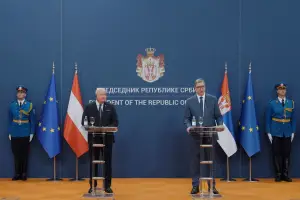 Belgrade, 13 August 2025
Belgrade, 13 August 2025High level of understanding, agreement between Serbia, Austria
-
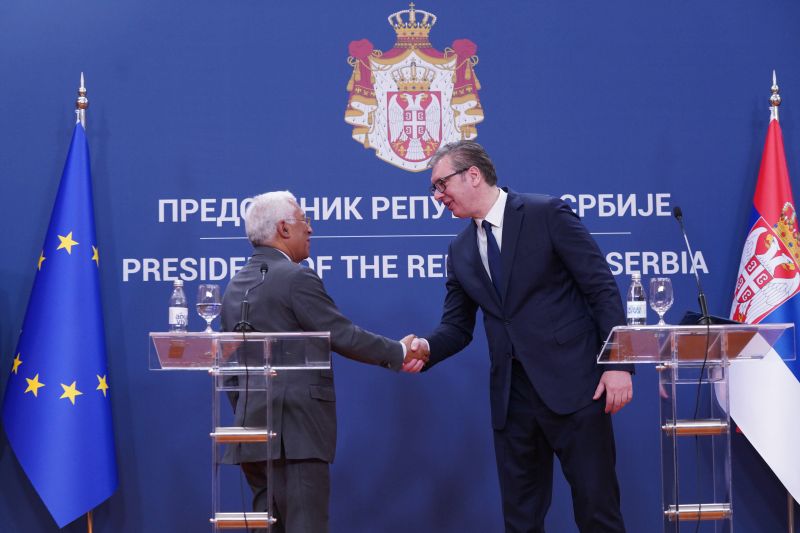 Belgrade, 13 May 2025
Belgrade, 13 May 2025Serbia's sincere, firm commitment to European path, reforms and dialogue
-
 Belgrade, 13 May 2025
Belgrade, 13 May 2025Vučić welcomes European Council President in front of Palace of Serbia
-
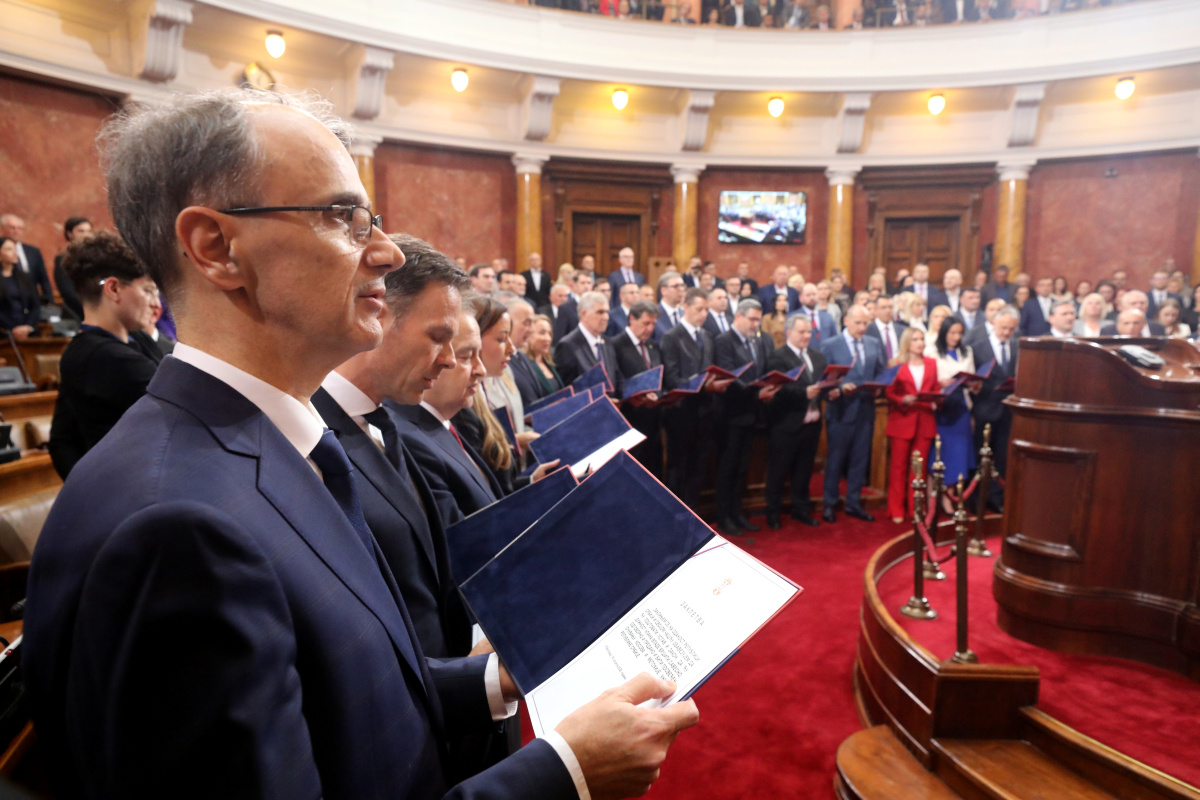 Belgrade, 16 April 2025
Belgrade, 16 April 2025New Serbian government voted in
-
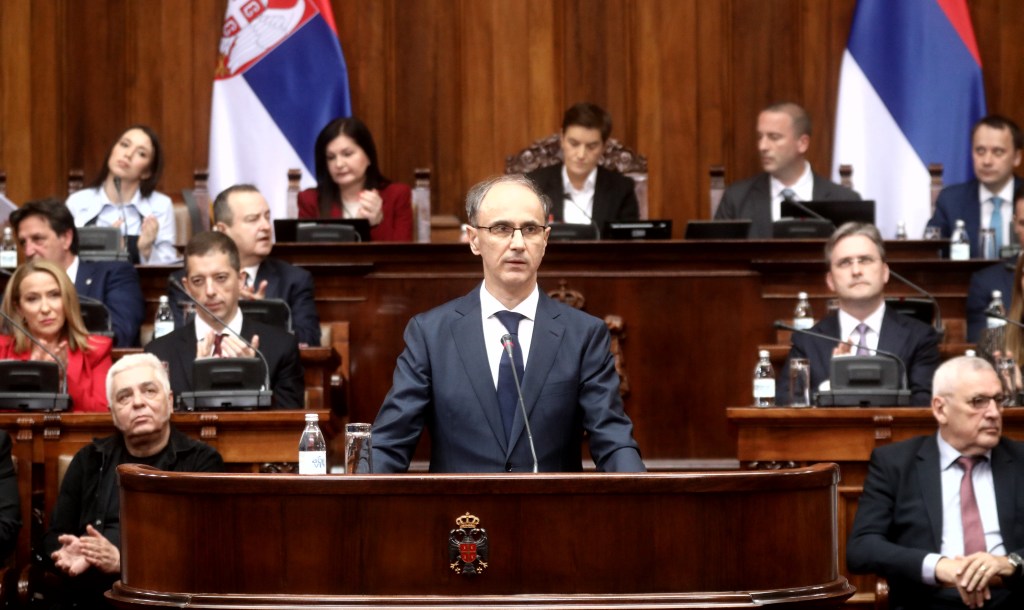 Belgrade, 15 April 2025
Belgrade, 15 April 2025Building unity through dialogue, tolerance, respect for value system
-
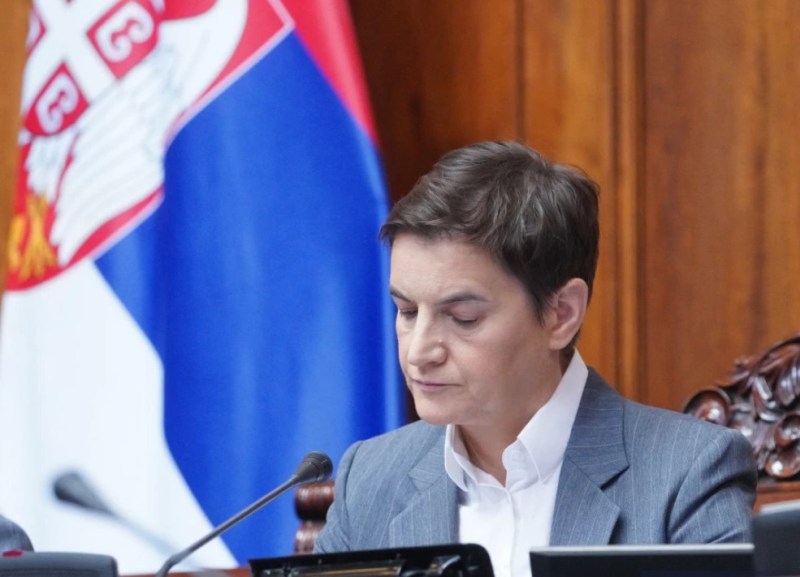 Belgrade, 14 April 2025
Belgrade, 14 April 2025National Assembly speaker convenes session on government election

